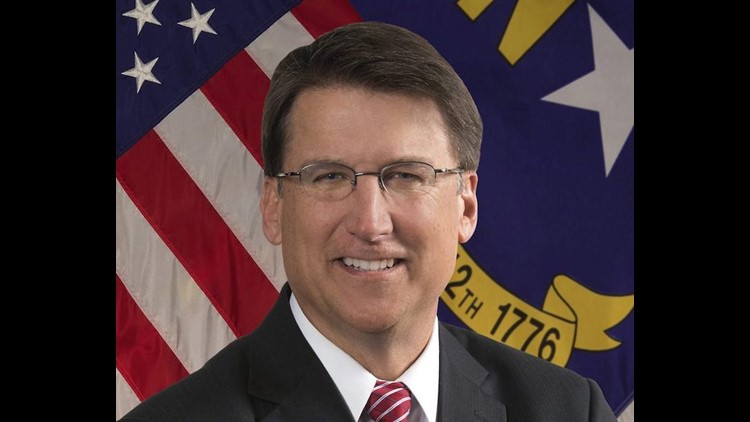The votes are in. They’ve been in. But North Carolina still doesn’t know who its next governor will be.
On one side, you have Attorney General Roy Cooper, the Democrat, who has repeatedly declared himself the winner. He is calling himself governor-elect in press releases and has already set up a website to collect resumes for leadership positions in his administration.
On the other is incumbent GOP Gov. Pat McCrory, who is demanding a recount of the votes. Previously, he had contested the election via challenges in dozens of counties, and he asked the state Board of Elections to take jurisdiction over the challenges. The board convened Tuesday to hear both sides.
“There’s nothing to suspect that Pat McCrory’s supporters have been systematically disenfranchised,” said North Carolina State University political science professor Steven Greene.
According to the state’s unofficial count on November 8, Cooper won by more than 6,000 votes. The Cooper camp said Tuesday that the latest count puts him ahead by more than 8,500 votes.
If the board of elections determined there were that many bogus votes, all for Cooper, it would suggest widespread fraud, which McCrory hasn’t proved, Greene said.
Governor: Fraud, fraud, fraud
The governor’s news releases of late would seem to suggest otherwise. In announcing McCrory’s demand for a recount, his campaign manager, Russell Peck, raised the specter of voting irregularities across the state.
“With many outstanding votes yet to be counted for the first time, legal challenges, ballot protests and voter fraud allegations, we must keep open the ability to allow the established recount process to ensure every legal vote is counted properly,” Peck said.
In other news releases, the governor’s team has cited “an absentee ballot fraud scheme” and “hundreds of fraudulent Cooper ballots.” Some voters were dead while others had voted in multiple states, the governor’s campaign claimed.
The board of elections discovered that more than 339 felons had voted early or cast absentee ballots, said one release. It added that the state board was looking into “hundreds of potentially fraudulent absentee ballots” in Bladen County.
Could McCrory prevail in recount?
There are always irregularities among the millions of votes cast in North Carolina (or in any state), Greene said. And yes, North Carolina does allow for recounts in contests decided by 10,000 or fewer votes. But the irregularities, absent widespread fraud, don’t tend to reach anything near 10,000 votes, he said. Ten thousand is just a safe number to ensure accountability, he said.
“It allows for faith and confidence in our democracy. This was close so we’re going to make extra sure,” he said.
There is no expectation that any recount will significantly close, let alone reverse, a gap of between 6,000 and 8,500 votes, the professor said.
“That’s a much larger amount of error than we’ve seen,” he said, explaining recounts tend to shift totals by a few hundred votes at most, not thousands, and the errors tend to be balanced — both for and against candidates.
‘No path to victory’
Cooper’s team has pointed out that in eight counties, GOP-controlled local election boards appointed by the McCrory administration have rejected challenges to the vote tally.
Cooper’s campaign manager Trey Nix brushed off the governor’s demand for a recount, claiming that as counties finish counting the votes, Cooper’s lead is growing.
“This is nothing but a last-ditch effort from Governor McCrory to delay and deny the results of this election,” Nix said in a news release. “We are confident that a recount will do nothing to change the fact that Roy Cooper has won this election.”
Earlier in the day, Nix stated, “There is no path to victory for Governor McCrory.”
Could legislature decide?
There has been speculation that McCrory has an ulterior motive to his challenges: to lay the groundwork for the state legislature to determine the race’s outcome. State law allows for it, though it’s been used only once, according to The News & Observer in Raleigh: in the 2005 race to fill the state superintendent of public instruction seat.
If the General Assembly decided the race, the law says that state courts could not review the decision. But Rick Hasen, a law and political science professor at the University of California, Irvine, pointed out on his Election Law Blog that nothing in the North Carolina law could or would prevent the federal courts from stepping in.
If Cooper secured more votes and there was no indication of fraud, “it could well be both a Due Process and Equal Protection Clause violation for the North Carolina legislature on a partisan basis to consider a ‘contest’ and overturn the results and hand them to Pat McCrory,” Hasen wrote.
N.C. State’s Greene believes the speculation is little more than fear-mongering anyway, noting that Republican lawmakers have been relatively reticent about the prospect of deciding the election. If it were a real possibility, they’d be laying the groundwork, Greene suspects.
The prospect is “fairly implausible, politically speaking,” he said.
“(Republican lawmakers) have a veto-proof supermajority, so the idea that they would dramatically threaten their credibility to reinstall Pat McCrory over the will of the voters seems like a stretch,” he said. “They’ve had complete control for the last four years.”
So, what’s at play? Why would McCrory continue challenging an election that he clearly appears to have lost?
“Desperation? Don’t overthink it,” Greene said. “It really doesn’t make a lot of sense.”



